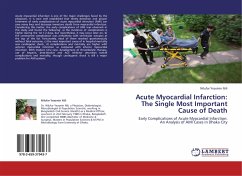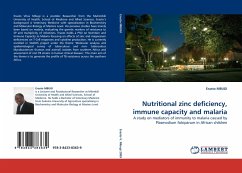
Fungal diseases, the Immune system and Single Nucleotide Polymorphisms
Do Single Nucleotide Polymorphisms in IL6 influence susceptibility to Fungal infections?
Versandkostenfrei!
Versandfertig in 6-10 Tagen
22,99 €
inkl. MwSt.

PAYBACK Punkte
11 °P sammeln!
Fungal infections are associated with mortality and morbidity. They appear to be on the increase these days as a result of increase in immunodeficiency states as is seen in HIV/AIDS, cancer and cancer treatment,and immunosuppression following transplantation. Fungi are ubiquitous and the diseases they cause may be superficial and trivial, allergic or more deep seated and life threatening. Most immunocompetent people are able to control and contain these infections. The host immune system thus determines the clinical outcome of fungal infections.Genetic variations influence individual responses...
Fungal infections are associated with mortality and morbidity. They appear to be on the increase these days as a result of increase in immunodeficiency states as is seen in HIV/AIDS, cancer and cancer treatment,and immunosuppression following transplantation. Fungi are ubiquitous and the diseases they cause may be superficial and trivial, allergic or more deep seated and life threatening. Most immunocompetent people are able to control and contain these infections. The host immune system thus determines the clinical outcome of fungal infections.Genetic variations influence individual responses to pathogens and diseases. A number of genetic susceptibility to fungal infections have been described. Single nucleotide polymorphisms(SNPs) have been shown to influence individual responses to diseases, drugs, chemicals,pathogens and vaccines. Interleukin-6 (IL6) is a proinflammatory cytokine important in immunity to fungal infections. Studies have associated SNPs in IL6 gene to circulating levels of IL6. Different genotypes of IL6 and the circulating levels of the cytokine was investigated in different subjects to determine the influence of SNPs on the susceptibility to fungal infections.












